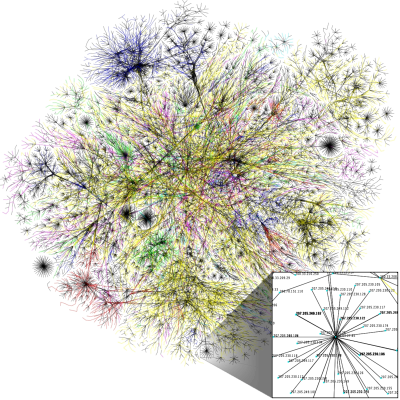Net Neutrality debate goes full throttle
Horace C. White
Modern Tokyo Times

The net neutrality rhetoric gets more interesting
For many broadband providers in the United States, the concept of net neutrality is already dead on arrival. No doubt, they will stop at nothing to ensure that net neutrality principles don’t see the light of day. Sadly, the broadband watchdog Federal Communications Commission (FCC), which spearheads its full implementation, seems to be fighting a losing battle. Now, let’s peek at its background.
Background information
Coined in 2003 by Tim Wu, a professor of media law at Columbia University, net neutrality is a principle which holds that internet behemoths owe their clients a responsibility to treat all the data that they (the broadband providers) route justly and equally. The push for its implementation has become critical given that many of these companies tend to give preferential treatments to certain clients and discriminate against others. A process called “throttling.” Since the 1990s, this practice has been a norm until the FCC stepped in to end it for good. With this end in view, in 2010, the FCC formulated the Open Internet Order to compel broadband providers to treat their customers equally. The broadband watchdog argues that using such regulations was the best way of securing the future of the Internet. However, in 2014, 4G LTE company Verizon picked holes in the law and filed a lawsuit against the FCC.
The legal issues
While there are related legal battles, the Verizon Communications Inc. versus FCC (2014) case seems to be the cynosure of all eyes. According to the US Court of Appeals’ ruling, the FCC has no authority to impose the Open Internet Order on broadband providers. In its verdict, the court noted that the regulator has relinquished the rights it has to treat the telecoms as “common carriers.” This is the case because the FCC had previously classified the broadband providers under Title I as against Title II of its Act. Well, analysts believe that the regulator and the net neutrality backers lost the case. In their opinions, supporters say that the FCC made a pivotal mistake in 2002 when the Commission classified telecoms, such as Verizon and Comcast, as Internet Service Providers (ISPs) instead of “telecom carriers.” Despite losing the case, former US president Barack Obama, who had earlier shown support for net neutrality, initiated the move for the Commission to amend the rules in 2014. In December 2017, the broadband regulator finally repealed the net neutrality law, leaving it to states to determine how it will be implemented. However, consumer protection groups and state attorneys have legally challenged the decision, leading to another round of litigation. From the foregoing, the countless legal fights over net neutrality are likely going to be decided by the Supreme Court of the United States (SCOTUS).
Have the telecoms lost their humanity?
As many people observe to see its endpoint, one must not fail to point out that there are certain behemoths that benefit from the failed net neutrality regulations. Most notably, Verizon is one of the biggest beneficiaries of failed a net neutrality regulation. In July 2017, the telecom company was accused of throttling the Internet access of its users. The users noticed that their access to YouTube and Netflix was terribly slowed down when they tried to stream videos on the sites. Apart from Verizon, telecom giants such as Comcast used forged packets to throttle upload on file-sharing apps. Well, Comcast never stopped until the FCC ordered them to.
Indeed, these companies continue to give preferential treatments to some clients in their quest to satisfy their desire to rake in huge profits. Whatever happened to fairness and justice? The very same principles the world-at-large should be promoting. These companies desire to carve away billions of US dollars in revenue despite the difficulties they make Internet users go through. For instance, in August 2018, it was widely reported in the media that Verizon throttled the data services of the fire department, thus impeding its ability to rapidly respond to emergencies. Although the telecom giant has denied it, Santa Clara County Fire Chief has nonetheless used it as a basis for making a case for net neutrality to be implemented. One may wonder if the telecoms have all lost their humanity in the quest to acquire wealth.
Government Intervention
It is no longer news that US President Donald Trump appointed Ajit Pai, as the new FCC chairperson. Pai, who is known critic of net neutrality, repealed the net neutrality principle upon coming into office. Afterward, the FCC announced that the states would henceforth domesticate the net neutrality principle in accordance with what is obtainable in their localities. Pai told reporters in Washington that the Internet is an “interstate service,” adding that the argument challenging the FCC decision is “baseless.” At this point, the handwriting on the wall is crystal clear. That is, the debate for or against net neutrality is going full throttle.
With the former Attorney General of California, Kamala Harris (D), and former CEO and Chairperson of Starbucks, Howard Schultz (I), in media highlights for the 2020 U.S. presidential election, the net neutrality debate will surely be a hot button issue for President Trump’s re-election.

PLEASE DONATE TO HELP MODERN TOKYO TIMES
Modern Tokyo News is part of the Modern Tokyo Times group
DONATIONS to SUPPORT MODERN TOKYO TIMES – please pay PayPal and DONATE to sawakoart@gmail.com
http://moderntokyotimes.com Modern Tokyo Times – International News and Japan News
http://sawakoart.com – Sawako Utsumi personal website and Modern Tokyo Times artist
https://moderntokyonews.com Modern Tokyo News – Tokyo News and International News
PLEASE JOIN ON TWITTER
https://twitter.com/MTT_News Modern Tokyo Times
PLEASE JOIN ON FACEBOOK
https://www.facebook.com/moderntokyotimes